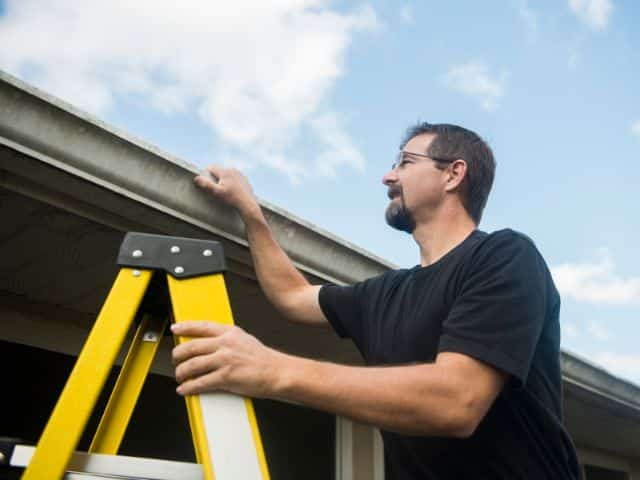If your area has recently been hit by a severe storm, resulting in damage to your roof, it’s essential to understand the roof insurance claim process. Dealing with insurance companies can be daunting, but with the right knowledge and guidance, you can navigate the process smoothly.
In this article, we will walk you through the steps involved in filing a roof insurance claim, understanding estimates, and working with contractors to ensure a successful roof replacement. Whether you have an actual cash value (ACV) or replacement cost value (RCV) policy, this guide will equip you with the necessary information to maximize your insurance claim and restore your roof to its former glory.
Table of Contents
– How Insurance Companies Determine the Estimate
– The Roof Insurance Claim Process
– The Importance of Supplementing Your Insurance Claim
– The Significance of Sharing Insurance Paperwork with Your Contractor
– Know the Scope of Work Required
– Prevent Insurance Fraud
– Establish Trust
– Comply with Insurance Company Recommendations
– Hiring a Roofing Contractor Experienced in Handling Insurance Claims
How Insurance Companies Determine the Estimate
Before diving into the roof insurance claim process, it’s crucial to understand how insurance companies calculate the estimate for your roof replacement. Insurance companies and contractors typically use software called Xactimate to generate estimates. Xactimate takes into account the average pricing of materials in your area, ensuring that the estimate aligns with regional market rates. It’s important to note that material costs can vary from month to month, resulting in estimates that fluctuate based on location.
The Roof Insurance Claim Process
 Contractor working to replace a storm-damaged roof
Contractor working to replace a storm-damaged roof
The roof insurance claim process begins with contacting your homeowner’s insurance company to report the storm damage. Provide them with all the necessary information, including the date and details of the storm and any visible damage to your roof. In some cases, your insurance company may require a preliminary inspection by a contractor before sending an adjuster to assess the damage.
Once your claim for storm damage is approved, your insurance company will issue an estimate check based on either the actual cash value (ACV) or the replacement cost value (RCV). Understanding the difference between these two terms is crucial:
- Actual Cash Value (ACV): This represents the depreciated value of your roof. Your insurance company will only reimburse you for the current value of your roof, taking into account its age and wear and tear.
- Replacement Cost Value (RCV): With an RCV policy, your insurance company will cover the full cost of replacing your roof. However, they may initially provide you with a check for the ACV, holding back the amount calculated as recoverable depreciation.
It’s important to note that the recoverable depreciation amount will be paid out by your insurance company once you provide proof of completion of the roof replacement. If you choose not to have the work done, the insurance company is not obligated to pay you for the depreciated portion of the claim.
The Importance of Supplementing Your Insurance Claim
 Contractor inspects roof to supplement an insurance claim
Contractor inspects roof to supplement an insurance claim
Upon receiving your insurance estimate and initial check, it’s time to engage a local roofing contractor. When choosing a contractor, ensure that they have experience working with insurance claims and are knowledgeable about the supplementing process. Supplementing a claim involves advocating for additional line items that were not initially included in the insurance adjuster’s estimate. This step is crucial because insurance adjusters often overlook necessary items, resulting in insufficient funds to restore your roof to its pre-storm condition.
When selecting a roofing contractor, ask them if they assist in the supplementing process. If they do not offer this service, it is advisable to continue your search for a contractor who does. Supplementing your claim ensures that your roof replacement adheres to local building codes and includes all necessary upgrades and repairs. A competent roofing contractor will work tirelessly to ensure that your insurance company covers all the essential line items, providing you with a comprehensive roof replacement.
The Significance of Sharing Insurance Paperwork with Your Contractor
 Client and contractor reviewing insurance paperwork together
Client and contractor reviewing insurance paperwork together
Once your claim is approved, and you have chosen a reputable roofing contractor, it is crucial to share your insurance paperwork with them. This may seem unusual, but it is a necessary step to ensure a successful roof replacement. Your insurance paperwork contains valuable information that your contractor needs to understand the scope of work approved by your insurance company. Sharing your insurance paperwork allows your contractor to:
Know the Scope of Work Required
By reviewing the insurance company’s paperwork, your contractor becomes aware of the specific line items approved by your insurance adjuster. This knowledge is essential to ensure that the contractor includes all necessary repairs, upgrades, and replacements in their scope of work. It also helps them identify any code requirements mandated by your local building department. Without access to this information, your contractor may overlook crucial elements, resulting in an incomplete or inadequate roof replacement.
Prevent Insurance Fraud
Sharing your insurance paperwork protects you from inadvertently committing insurance fraud. If you have an RCV policy, the insurance company expects you to complete all the work outlined in the claim. The contractor’s scope of work should align with what was approved by the insurance adjuster. Failure to include all the necessary line items in the contractor’s estimate may raise suspicions of fraudulent activity. To avoid any complications, ensure that your contractor’s scope of work matches the approved claim.
Establish Trust
Sharing your insurance paperwork with your contractor fosters trust and transparency. It demonstrates that you trust their expertise and value their input in the roof replacement process. Conversely, the contractor gains confidence in working with you, knowing that you are committed to following the insurance company’s guidelines. This mutual trust sets a solid foundation for a successful partnership in restoring your roof.
Comply with Insurance Company Recommendations
Insurance companies often advise homeowners to share their claim paperwork with their chosen contractors. This recommendation reinforces the importance of transparency and collaboration between all parties involved. The insurance company wants to ensure that the contractor understands the approved scope of work and can address any questions or concerns directly with the adjuster. By following this recommendation, you align yourself with your insurance company’s guidelines and facilitate effective communication throughout the roof replacement process.
Hiring a Roofing Contractor Experienced in Handling Insurance Claims
 Hiring the right contractor is extremely important when it comes to the roof insurance claims process
Hiring the right contractor is extremely important when it comes to the roof insurance claims process
As you embark on the process of hiring a roofing contractor, it is crucial to select one with extensive experience in handling insurance claims. The right contractor will have a deep understanding of the roof insurance claim process and can guide you through each step. They will have established relationships with insurance adjusters, enabling them to effectively communicate and negotiate on your behalf. Additionally, a contractor experienced in insurance claims will be well-versed in supplementing your claim, ensuring that you receive the maximum coverage for your roof replacement.
In conclusion, navigating the roof insurance claim process can be overwhelming, but with the right knowledge and support, you can successfully restore your roof. Understanding how insurance companies determine estimates, supplementing your claim, and sharing insurance paperwork with your contractor are crucial steps in maximizing your insurance coverage. By hiring a roofing contractor experienced in handling insurance claims, you can ensure a smooth and successful roof replacement. Remember, the key to a successful claim is transparency, collaboration, and working with trusted professionals who prioritize your needs.
–
Elite Exteriors is proud to be insurance claims specialists, and works hard on the homeowners behalf, guiding them through the insurance claims process, and taking the stress out of making a claim. We are happy to answer any insurance questions you may have, and to bring your roof back to its pre-storm condition.
Elite Exteriors is the Southeast’s premier residential and commercial resource for unparalleled service, superior craftsmanship, and incomparable quality. And it’s all backed by an unprecedented lifetime labor and materials warranty! Give us a call today at 470-350-3024 for a NO-COST initial consultation and inspection, or fill out our online form for more information!